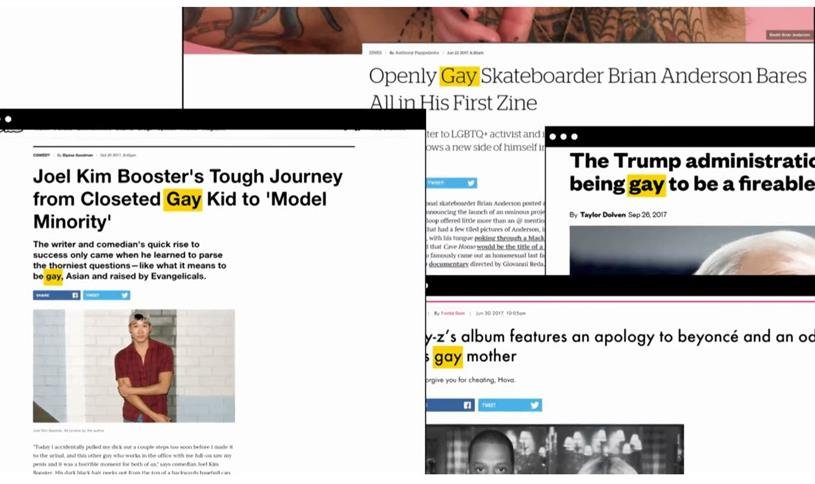Get analysis, insight & opinions from the world's top marketers.
Sign up to our newsletter.
In times of isolation we need to prioritise diversity more than ever. WFA’s first ever diversity ambassadors, Belinda Smith, former EA marketing lead and Jerry Daykin, Senior Media Director at GSK, explain why.
When times get hard, it’s usually those on the margins of society who suffer most. While we are all affected by the lockdown, some are having to deal with so much more.
In the US and the UK, Coronavirus is disproportionately hitting black and brown communities.
Around the world and across many industries, workers from diverse communities are not just struggling with working alone but also having to take on additional roles as parent-teacher while struggling with income, housing and food insecurity.
For those able to, it is far easier to work from home if you have a dedicated home office and quiet space, compared to those struggling to make a quiet corner in their shared apartment work.

Dove's recent campaign, 'Courage is Beautiful', shines a spotlight on healthcare workers
Just as companies need greater understanding of the additional pressures on those temporarily without childcare, perhaps by reducing workloads or structuring work around family life, the same attention to detail needs to apply to the specific challenges facing diverse communities.
The pressures of managing work-life “balance" have never been so real, or so persistent. Ensuring the wheels don't fall off requires every business to maintain a relentless focus on its people and provide a level of support that matches who they are and what they're experiencing.
Businesses were making the right noises on diversity in the good times, now they need to keep those promises when times are tough— a commitment that we won’t just revert to the traditional post-crisis model of taking care of those who already have, and hope that some of the benefits trickle down to others.
A true commitment means that before, during and after this crisis, your organisation continues to consider how best to listen to, support and evolve for the needs of a modern workforce. An unprecedented moment like this also makes it more important than ever to show empathy and reflect diverse consumer realities in your communications.
A cared-for employee is better able to care for your customers and their communities, a sentiment that will resonate long after your special TV ad has long-since been forgotten.
What’s critical is that you don’t take knee-jerk reactions out of fear. For example, many in this pandemic have followed the old, tired, unquestioned playbook of "block everything news" for their advertising.
Many mainstream publishers are experiencing this funding cut on their COVID-19 coverage. Readers want this news (and are reading much more of it) but advertisers are blacklisting a huge range of Coronavirus-related terms, reducing publisher ability to earn revenue.
Such behaviour has been a real issue for specialist publishers for many years as programmatic practices have evolved. Not only does it have the negative effect of restricting the voice of diverse communities, where crude blacklists can include words such as “Muslim” or “Lesbian”, cutting their ad support not just in ordinary times but also limiting their ability to support people now, at a time they need it most.

At the end of 2018, Vice revealed troubling data, showing how terms like "gay" were placed higher on blacklists over "rape," "death" and "heroin"
The new WFA Taskforce on Diversity and Inclusion aims to create guidance that helps businesses do what’s right in this area, building on the excellent work that many in our business have done. Our first step is to launch a guide to all facets of the diversity spectrum, going beyond its Guide to Progressive Gender Portrayals in Advertising, launched back in 2018.
We’re thrilled to have the support of brands such as Diageo, Mastercard, P&G and Unilever as well as many agency groups in developing and delivering best practice advice that can support change internally and externally at companies of all sizes.
The four goals for the taskforce is to become the:
Ultimately, an organisation that includes different perspectives, experiences, family set ups and needs is far better able to cope with both today and tomorrow. Because they can so easily see how needs vary across the different groups of people they deal with, both internally and externally.
Simple measures such as ensuring the head of Diversity and Inclusion reports to the CEO not HR, actively seeking out feedback from under-represented groups or joining organisations that support diverse talent initiatives all put corporations in a better place.
It ensures they are better able to look after their people, because they have people on the team who instinctively know exactly what challenges they face. It also means that creative messages are more likely to be tested against the experiences of real people.
Coronavirus is forcing us to change many aspects of what we do as marketers, creatives and media strategists. Ripping things up and moving fast may be the only way to cope, but it’s vital that everyone is aware how their decisions impact on our diverse communities.
Change can be a good thing and adapting to the Coronavirus lockdown and beyond is a chance to make real positive change that will impact not just on consumers but also colleagues and partners across our industry.
This is a critical time during which brands can play key roles providing inspiring, uplifting and uniting news and doing the right thing for diversity should be an important part of that story. It’s the right thing for your colleagues, the right thing for your consumers and ultimately it has proven to be the right thing for your business’ bottom line.
You cannot hope to stand up and be a diversity champion in the good times if you aren’t there for people who need it in the bad times.
This article originally appeared in Marketing Week here.